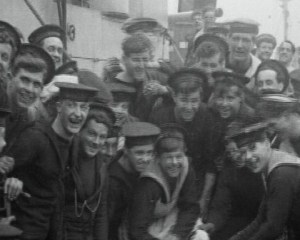The world’s first MSc in Maritime Security has been launched by the University of Greenwich. The course is designed to help the expanding international shipping industry tackle threats such as piracy and terrorism on the high seas. It will also deal with new issues affecting environmental and energy security, and aims to equip graduates, security personnel, serving and former members of the armed services with the professional skills they need to succeed in senior management roles in this growing professional sector.
The university’s Greenwich Maritime Institute (GMI) has teamed up with its School of Engineering and Natural Resources Institute (NRI), with Marine Insurance and Maritime Crime Consultants and with the Security Association for the Maritime Industry (SAMI), to develop the course. It draws on the institute’s established strengths in maritime management, policy and history as well as the university’s wider expertise in engineering, technology, energy, environmental science and the Law of the Sea.
SAMI, which provides an independent regulatory forum for the maritime security industry, has contributed its professional knowledge of the sector.
The career development opportunities offered by this new qualification are expected to attract interest from people currently working, or seeking employment, in senior roles in the armed services, the private maritime and shipping sector, private security firms, government bodies and law enforcement agencies.
Students can start this September, studying full-time for one year, or part-time over two years. They will be based in the historic setting of the university’s campus in the Old Royal Naval College, within the Maritime Greenwich World Heritage Site, at the heart of the nation’s naval and maritime seafaring traditions.
Professor Chris Bellamy, Director of the Greenwich Maritime Institute (GMI), says: “The whole planet depends on safe, secure shipping. By volume, up to 90 percent of international trade is carried by sea. Yet our oceans, which cover 70 per cent of the planet, can be dangerous places and there are incre
asing threats to this multi-trillion pound business.
“Almost every day we hear about issues such as pirates in the Indian Ocean, the Gulf of Guinea and the Malacca Strait; port security, not to mention the melting Arctic, rising sea levels, maritime oil and gas, wind and tidal issues. The maritime industry needs educated people with the informed vision to deal with these threats and opportunities. This course can help to provide the professional development which is so vitally needed.”
SAMI Founder, Peter Cook, adds: “The maritime security industry has come a long way in stressing its professional credentials. The creation of this Masters degree is yet another stage in this development and we would encourage all those considering a career in the highest echelons of this rapidly growing industry to join this course.”
To find out more: http://www2.gre.ac.uk/study/courses/pg/mar/maritime-security,-msc
The Security Association for the Maritime Industry (SAMI)
SAMI provides an independent regulatory trade association for the maritime security industry and a focal point for global maritime security matters. Its membership is made up of over 100 maritime security providers from around the globe as well as equipment, technology and hardware providers exploring technical security solutions.
For a full list of SAMI members and more information about the Association and its work visit: www.seasecurity.org






